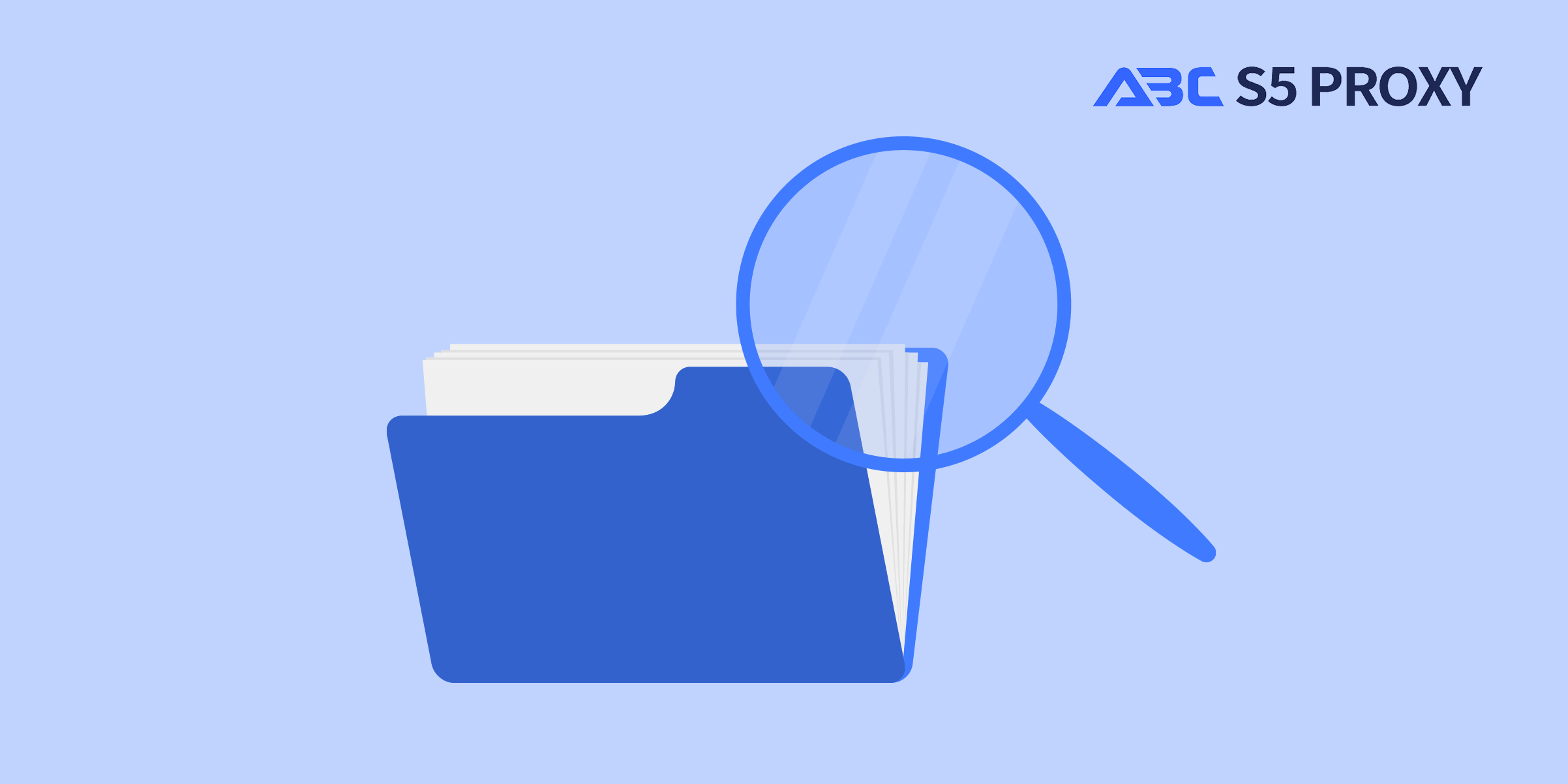Residential Proxies
Allowlisted 200M+ IPs from real ISP. Managed/obtained proxies via dashboard.

Proxies
Residential Proxies
Allowlisted 200M+ IPs from real ISP. Managed/obtained proxies via dashboard.
Residential (Socks5) Proxies
Over 200 million real IPs in 190+ locations,
Unlimited Residential Proxies
Use stable, fast, and furious 700K+ datacenter IPs worldwide.
Static Residential proxies
Long-lasting dedicated proxy, non-rotating residential proxy
Dedicated Datacenter Proxies
Use stable, fast, and furious 700K+ datacenter IPs worldwide.

Web Unblocker
View content as a real user with the help of ABC proxy's dynamic fingerprinting technology.
Proxies
API
Proxy list is generated through an API link and applied to compatible programs after whitelist IP authorization
User+Pass Auth
Create credential freely and use rotating proxies on any device or software without allowlisting IP
Proxy Manager
Manage all proxies using APM interface

Proxies
Residential Proxies
Allowlisted 200M+ IPs from real ISP. Managed/obtained proxies via dashboard.
Starts from
$0.77/ GB
Residential (Socks5) Proxies
Over 200 million real IPs in 190+ locations,
Starts from
$0.045/ IP
Unlimited Residential Proxies
Use stable, fast, and furious 700K+ datacenter IPs worldwide.
Starts from
$79/ Day
Rotating ISP Proxies
ABCProxy's Rotating ISP Proxies guarantee long session time.
Starts from
$0.77/ GB
Static Residential proxies
Long-lasting dedicated proxy, non-rotating residential proxy
Starts from
$5/MONTH
Dedicated Datacenter Proxies
Use stable, fast, and furious 700K+ datacenter IPs worldwide.
Starts from
$4.5/MONTH
Knowledge Base
English
繁體中文
Русский
Indonesia
Português
Español
بالعربية

Title: Demystifying HTTP Headers: A Comprehensive Guide
HTTP headers play a crucial role in facilitating communication between web servers and clients. Despite their significance, many people find HTTP headers to be complex and intimidating. In this blog post, we will break down the concept of HTTP headers and explain their importance in the world of web development.
HTTP headers are essential components of the Hypertext Transfer Protocol (HTTP), which is the foundation of data communication on the World Wide Web. Simply put, HTTP headers are additional pieces of information sent along with a request or response that provide metadata about the message being transmitted.
There are different types of HTTP headers, including request headers, response headers, general headers, and entity headers. Request headers are sent by the client to the server, while response headers are sent by the server to the client. General headers are present in both request and response messages, while entity headers contain information about the body of the message.
1. Control Communication: HTTP headers allow clients and servers to exchange crucial information about the web request and response. This information includes details such as content type, content length, caching directives, and more. By leveraging HTTP headers, developers can control how web content is transmitted and displayed to users.
2. Enable Authentication and Security: HTTP headers are instrumental in implementing security measures such as authentication, encryption, and access control. Headers like `Authorization`, `Content-Security-Policy`, and `Strict-Transport-Security` help protect sensitive data, prevent attacks like cross-site scripting (XSS), and ensure secure communication between clients and servers.
3. Optimize Performance: Certain HTTP headers, such as `Cache-Control` and `ETag`, enable caching mechanisms that can significantly improve website performance by reducing server load and speeding up content delivery. Properly configured headers can help mitigate latency and bandwidth issues, leading to a better user experience.
4. Facilitate Content Negotiation: HTTP headers like `Accept` and `Content-Type` support content negotiation, allowing servers to deliver content in various formats based on client preferences. This flexibility ensures compatibility with different devices and browsers, enhancing the accessibility and usability of web applications.
1. Accept: Specifies the media types that the client can process.
2. Content-Type: Indicates the media type of the resource sent in the message's body.
3. Cache-Control: Directives for caching mechanisms to control how responses are stored and reused.
4. User-Agent: Identifies the client making the request, typically the user's browser or application.
5. Location: Specifies a different location to redirect the client to.
6. Set-Cookie: Sets cookies on the client's browser to maintain session state.
In conclusion, HTTP headers are integral to the functioning of the web and play a vital role in ensuring smooth and secure communication between clients and servers. By understanding the purpose and functionality of different HTTP headers, developers can optimize web performance, enhance security, and improve user experience. We hope this guide has shed light on the importance of HTTP headers and inspired you to delve deeper into this fundamental aspect of web development.
Featured Posts
Popular Products
Residential Proxies
Allowlisted 200M+ IPs from real ISP. Managed/obtained proxies via dashboard.
Residential (Socks5) Proxies
Over 200 million real IPs in 190+ locations,
Unlimited Residential Proxies
Use stable, fast, and furious 700K+ datacenter IPs worldwide.
Rotating ISP Proxies
ABCProxy's Rotating ISP Proxies guarantee long session time.
Residential (Socks5) Proxies
Long-lasting dedicated proxy, non-rotating residential proxy
Dedicated Datacenter Proxies
Use stable, fast, and furious 700K+ datacenter IPs worldwide.
Web Unblocker
View content as a real user with the help of ABC proxy's dynamic fingerprinting technology.
Related articles

How does the ChatGPT RAG example improve information processing capabilities
Analyze the actual application scenarios of ChatGPT combined with Retrieval Augmented Generation (RAG) technology, explore its value in knowledge integration and data acquisition, and understand how abcproxy provides underlying support for the RAG system.

How does Best Socks5 Proxy ensure anonymous network needs
This article explores the core value of Socks5 proxy in anonymous networks and analyzes how abcproxy high anonymous proxy meets diverse security needs.

How to remove website access restrictions
This article analyzes the technical principles and mainstream solutions of website access restrictions, and explores the core role of proxy IP in bypassing regional blocking and anti-crawling mechanisms. abcproxy provides multiple types of proxy IP services to help you break through network restrictions efficiently.